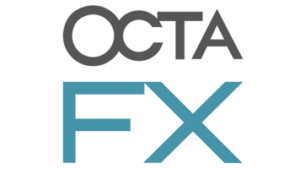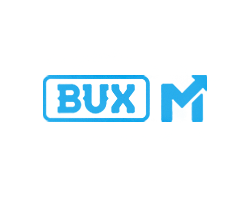Bitcoin Forex Trading
| Position | Company Logo | Information | Bonuses | Min. Dep | Regulation | Open an account |
|---|---|---|---|---|---|---|
 |
|
|
Minimum Deposit: $20 |  |
||
 |
|
|
Minimum Deposit: $250 |  |
||
 |
|
|
Minimum Deposit: $250 |  |
||
|
4
|
|
|
Minimum Deposit: $250 |  |
||
|
5
|
|
|
Minimum Deposit: $100 |  |
||
|
6
|
|
No deposit bonus | Minimum Deposit: $5 |  |
||
|
7
|
 |
|
No deposit bonus | Minimum Deposit: $10 |  |
|
|
8
|
|
|
Minimum Deposit: $250 |  |
||
|
9
|
|
No deposit bonus | Minimum Deposit: $250 |  |
||
|
10
|
|
|
No deposit bonus | Minimum Deposit: $100 |  |
|
|
11
|
|
No deposit bonus | Minimum Deposit: $10 |  |
||
|
12
|
|
|
No deposit bonus | Minimum Deposit: $25 |  |
|
|
13
|
|
|
No deposit bonus | Minimum Deposit: $100 |  |
|
|
14
|
|
No deposit bonus | Minimum Deposit: $10 |  |
||
|
15
|
|
|
No deposit bonus | Minimum Deposit: $10 |  |
|
|
16
|
|
|
No deposit bonus | Minimum Deposit: $2 |  |
|
|
17
|
|
|
No deposit bonus | Minimum Deposit: $500 |  |
The integration of cryptocurrencies and traditional markets has given rise to a unique form of trading: Bitcoin Forex Trading. This guide aims to provide a comprehensive overview of this exciting and dynamic trading avenue, equipping you with the knowledge and strategies necessary to navigate the intricate waters of Bitcoin Forex Trading successfully.
What Is Bitcoin Forex Trading?
Bitcoin Forex Trading is the process of speculating on the price movements of Bitcoin against various fiat currencies, such as the US Dollar within the foreign exchange (forex) market. It combines the volatility and potential of the cryptocurrency market with the liquidity and established infrastructure of the forex market, offering traders a unique opportunity to diversify their portfolios and capitalize on the ever-changing dynamics of the global financial landscape.
Key Takeaways
- Bitcoin Forex Trading involves speculating on Bitcoin’s price movements against various fiat currencies in the foreign exchange market.
- It combines the volatility of cryptocurrencies with the liquidity of the forex market, offering portfolio diversification opportunities.
- Trading is facilitated through cryptocurrency exchanges and brokers offering Bitcoin CFDs or binary options.
- Understanding technical and fundamental analysis, risk management, and basic strategies is crucial for success.
- Advantages include 24/7 trading, high volatility potential, leverage, and diversification.
- Disadvantages include high risk, regulatory uncertainties, technical complexity, and cyber security risks.

Forex Trading With Bitcoin: How Does It Work?
To begin Bitcoin Forex Trading, you’ll need to open an account with a reputable broker that offers this service. Many brokers have embraced the cryptocurrency revolution and now offer Bitcoin CFDs (Contracts for Difference) trading, as well as binary options trading, allowing traders to speculate on the price movements without actually owning the underlying asset.
Bitcoin CFDs Trading
Contract for Difference (CFDs) trading is a popular way to trade Bitcoin against various fiat currencies. With CFDs, you speculate on the price movements of the underlying asset without actually owning it. Brokers like IQCent, Videforex, and BinaryCent offer Bitcoin CFDs trading, providing leverage and the ability to go long or short on the market.
Bitcoin Binary Options Trading
Binary options trading is another avenue for Bitcoin Forex Trading. With binary options, you can predict whether the price of Bitcoin will rise or fall against a specific currency pair within a predetermined time frame. If your prediction is correct, you receive a fixed payout; if not, you lose your investment. Brokers like Raceoption and Smartytrade offer binary options trading on popular Bitcoin forex pairs like BTC and USD.
How to Trade Bitcoin Forex
Once your account is funded, you can start placing orders to buy or sell Bitcoin against different currency pairs. For example, you might choose to buy Bitcoin with US dollars (BTC/USD). These trades are executed through the broker’s trading platform, which provides real-time market data, charting tools, and order execution capabilities.
When trading BTC/USD in binary options, you would predict whether the price of Bitcoin will rise or fall against the US Dollar within a specific time frame, typically ranging from 30 seconds to several hours or even days. If your prediction is correct, you will receive a predetermined payout, typically between 70% and 90% of your investment.
Best Bitcoin Forex Trading Brokers
To ensure a seamless Bitcoin Forex Trading experience, we recommend our partnered brokers, who offer both CFDs and binary options trading on Bitcoin and other cryptocurrency pairs. These brokers are regulated and trusted within the industry, providing user-friendly trading platforms, educational resources, and responsive customer support.
IQCent, Videforex, BinaryCent, Raceoption, and Smartytrade are among our recommended brokers for Bitcoin Forex Trading. Each broker offers unique features, tools, and trading conditions, allowing you to choose the one that best suits your trading style and preferences.
They offer up to 98% payouts on Binary options trades and leverage up to 1:500 on CFDs trades.
Crypto and Forex Differences
While Bitcoin Forex Trading bridges the gap between cryptocurrencies and the forex market, it’s essential to understand the key differences between these two worlds:
- Volatility and Market Dynamics: Cryptocurrencies, including Bitcoin, are known for their high volatility, meaning their prices can fluctuate significantly within short periods. Market speculation, current events, and cryptocurrencies’ relatively lower market capitalization when compared to conventional financial markets are some of the factors that contribute to this volatility. CFD In contrast, the forex market is comparatively less volatile, with more stable and predictable price movements influenced by economic indicators, central bank policies, and global events.
- Trading Hours and Liquidity: The cryptocurrency market operates 24/7, with no centralized exchange or trading hours. This continuous trading environment offers traders flexibility and the ability to react to market movements at any time. The forex market, however, follows a more traditional schedule, with specific trading sessions and periods of higher liquidity. The major forex trading sessions are the London, New York, and Tokyo sessions, which overlap and create periods of increased market activity and liquidity.
- Regulatory Landscapes: The forex market is heavily regulated, with strict rules and oversight from financial authorities, such as the Commodity Futures Trading Commission (CFTC) in the United States and the Financial Conduct Authority (FCA) in the United Kingdom. These regulations aim to protect investors, ensure market integrity, and prevent fraudulent activities. In contrast, the cryptocurrency market is largely decentralized and subject to varying levels of regulation across different jurisdictions, with some countries embracing cryptocurrencies while others remain cautious or even hostile toward them.
- Market participants: Institutional players, such as banks, hedge funds, and large corporations, dominate the forex market, whereas the cryptocurrency market has a more diverse range of participants, including individual investors, miners, and decentralized communities.
- Market Capitalization: The forex market is the largest and most liquid financial market in the world, with a daily trading volume of $6.6 trillion. In contrast, the cryptocurrency market, despite its rapid growth, still has a relatively smaller trading volume of $98.2 billion and lower liquidity compared to traditional financial markets.
Basic Strategies
To succeed in Bitcoin Forex trading, it’s crucial to develop a well-rounded trading strategy. Here are some fundamental approaches to consider:
- Technical Analysis: Charting the Path to Success Technical analysis involves studying historical price data, chart patterns, and indicators to identify potential trading opportunities. Popular tools used in technical analysis include moving averages, support and resistance levels, and candlestick patterns.
- Fundamental Analysis: Evaluating the Underlying Factors Fundamental analysis focuses on assessing the underlying factors that influence the price of Bitcoin and the respective fiat currencies. This includes news, economic data, regulatory changes, and market sentiment.
- Risk Management: Protecting Your Investment Effective risk management is essential in any trading endeavor. Strategies like setting stop-loss orders, implementing position sizing rules, and diversifying your portfolio can help mitigate potential losses and preserve your capital.
Pros and Cons of Bitcoin Forex Trading
Like any investment opportunity, Bitcoin Forex Trading comes with its own set of advantages and disadvantages. Here’s a quick overview:
| Pros | Cons |
| Diversification: Bitcoin Forex Trading allows you to diversify your portfolio by combining cryptocurrencies and traditional forex markets. | High Risk: The high volatility and leverage associated with Bitcoin Forex Trading can lead to substantial losses if not managed properly. |
| 24/7 Trading: The cryptocurrency market operates around the clock, providing ample opportunities for trading. | Regulatory Uncertainties: The regulatory landscape surrounding cryptocurrencies is still evolving, leading to potential risks and uncertainties. |
| High Volatility: The volatility of cryptocurrencies can lead to significant price movements, creating the potential for substantial profits. | |
| Leverage: Many brokers offer leverage, allowing you to control larger positions with a smaller initial investment. |
The Bottom Line
Bitcoin Forex Trading represents a fusion of two dynamic financial realms, offering traders a unique opportunity to capitalize on the potential of cryptocurrencies while leveraging the established infrastructure of the forex market. However, it’s crucial to approach this trading avenue with caution, proper education, and a well-defined strategy.
Continuous learning and adaptation are key to success in this ever-evolving landscape. By staying up-to-date with market trends, regulatory changes, and the latest trading strategies, you can position yourself for long-term success in the exciting world of Bitcoin Forex Trading.
Frequently Asked Questions
Is Bitcoin Forex Trading legal?
The legality varies across jurisdictions. In many countries, it is permitted but regulations differ. It’s crucial to research your local laws regarding cryptocurrency trading, taxation, and reporting requirements to ensure compliance and avoid legal issues.
What are the trading costs associated with Bitcoin Forex Trading?
Trading costs can vary across brokers, but typically include spreads (the difference between bid and ask prices), commissions, overnight financing fees for leveraged positions, and potential withdrawal fees. It’s essential to understand and compare the full range of costs before choosing a broker.
Is leverage available for Bitcoin Forex Trading?
Yes, many brokers offer leverage for trading Bitcoin forex pairs, allowing you to control larger position sizes with a smaller initial investment. However, leverage amplifies both potential profits and losses, so it should be used with caution and with proper risk management strategies.
What is the minimum investment required?
Minimum deposit requirements vary widely among brokers. Some offer micro accounts with minimums as low as $10, while others require $500 or more to open an account for Bitcoin forex trading. Research brokers’ policies carefully.
How do I choose a reputable broker?
Evaluate factors like regulation, trading platforms, tools, customer support, educational resources, and fees. Read independent reviews, check for proper licensing, and prioritize brokers with a solid reputation for security and transparency.
Can I trade on my mobile device?
Absolutely, most Bitcoin forex brokers provide user-friendly mobile apps. These allow you to monitor positions, analyze charts, and execute trades seamlessly from your smartphone or tablet while on the go.















